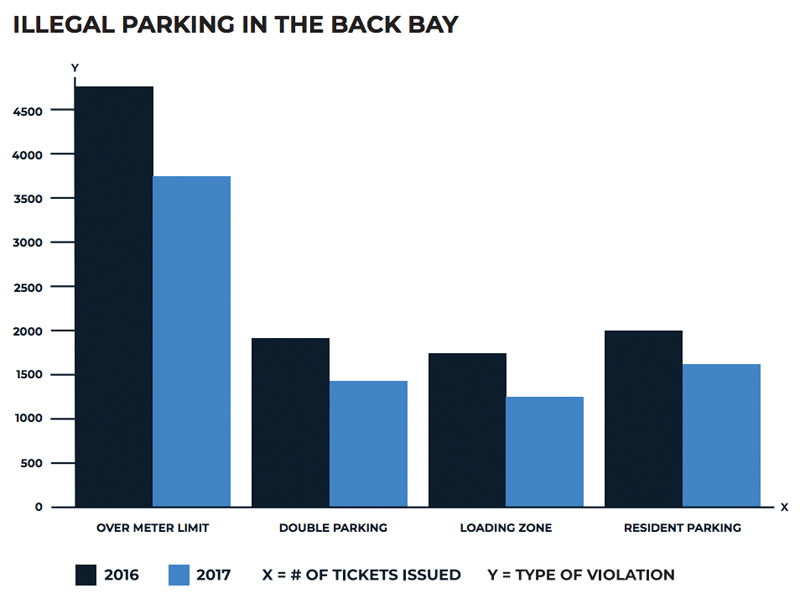Boston has reduced illegal parking by adjusting meter rates, according to new a report from the city [PDF].
The price of on-street parking is a powerful lever to reduce street dysfunction. But in most cities, not much thought goes into managing curb space, and the problems created by underpriced parking fester, creating congested conditions that slow down surface transit and other traffic.
Prior to Boston's one-year experiment in pricing the curb, the standard rate for on-street parking was $1.25 per hour. That's far lower than the price of off-street parking, which creates a huge economic incentive to circle for cheap curb space. It also leads people to occupy the same parking spot for long periods of time, which also creates traffic and double-parking by limiting the availability of on-street spots.
Boston officials changed that by raising parking prices in the Back Bay Area to $3.75 per hour. Simultaneously, in the Seaport area, parking prices were adjusted according to location and time of day in response to variations in demand, with the goal of keeping two spaces open on each block.
In both cases, there were measurable improvements. In the Back Bay, the rate of double parking decreased 14 percent, and illegal parking spillover into spaces reserved for residents dropped 12 percent. Meanwhile, the length of the average stay at a meter fell 17 percent, and occupancy fell 11 percent, so drivers don't spend as long in search of an open space.
In Seaport, where prices varied from $1 to $4 per hour, parking occupancy barely changed. But double parking dropped 24 percent and parking in residential zones dropped 35 percent.
Other factors at work complicate the attempt to isolate why one method of pricing the curb had a different effect than the other. In the Seaport area, for instance, extensive development and construction work disrupted the on-street parking supply. But it's possible that the Seaport parking prices remained too low to significantly affect behavior. Only toward the end of the 12 months did peak prices reach the $3-$4 range.
Given the results, Boston officials prefer the "zone pricing," which had a bigger effect on parking occupancy and is much easier to manage.
Now it's up to Mayor Marty Walsh to decide whether to make these parking reforms permanent and expand them to other neighborhoods.






